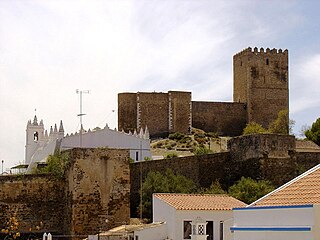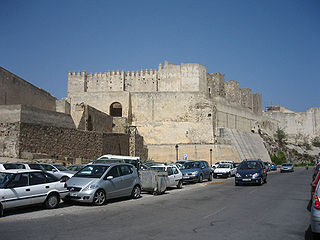 W
WAn Abbasid–Carolingian alliance was attempted during the 8th to 9th century through a series of embassies, rapprochements and combined military operations between the Frankish Carolingian Empire and the Abbasid Caliphate and pro-Abbasid rulers in Al Andalus.
 W
WThe Castle of Medinaceli is a medieval fortress in Medinaceli. It was built in the 9th century and rebuilt in the 15th century. Almanzor died here in 1002.
 W
WThe Castle of Mértola is a well-preserved medieval castle located in the civil parish and municipality of Mértola, in the Portuguese district of Beja.
 W
WThe Castle of Tarifa, also known as Castle of Guzmán el Bueno or Castle of the Guzmáns is a castle in the coastal town of Tarifa in Spain.
 W
WFraxinet or Fraxinetum was the site of a 10th-century fortress established by Muslims at modern La Garde-Freinet, near Saint-Tropez, in Provence. The modern Massif des Maures takes its name from the Muslims of Fraxinet.
 W
WThe castle of Gormaz is a large citadel located in Gormaz, Spain. It was the largest fortress in Europe after its expansion in 956.
 W
WMonzón Castle is a fortress located in Monzón, Spain.
 W
WThe Reconquista was a period in the history of the Iberian Peninsula of about 780 years between the Umayyad conquest of Hispania in 711, the expansion of the Christian kingdoms throughout Hispania, and the fall of the Nasrid kingdom of Granada in 1492.
 W
WViking activity in the Iberian peninsula seems to have begun around the mid-ninth century as an extension of Viking raids on and establishment of bases in Frankia in the earlier ninth century. While connections between the Norse and Eastern Islamic lands were well-established, particularly involving the Rus' along the Volga and around the Caspian Sea, relations with the Western edge of Islam were more sporadic and haphazard. Although Vikings may have over-wintered in Iberia, no evidence has been found for trading or settlement. Indeed, the Iberian peninsula may not have offered particularly wealthy targets, in the ninth to tenth centuries. Sporadic raiding continued until the end of the Viking Age.